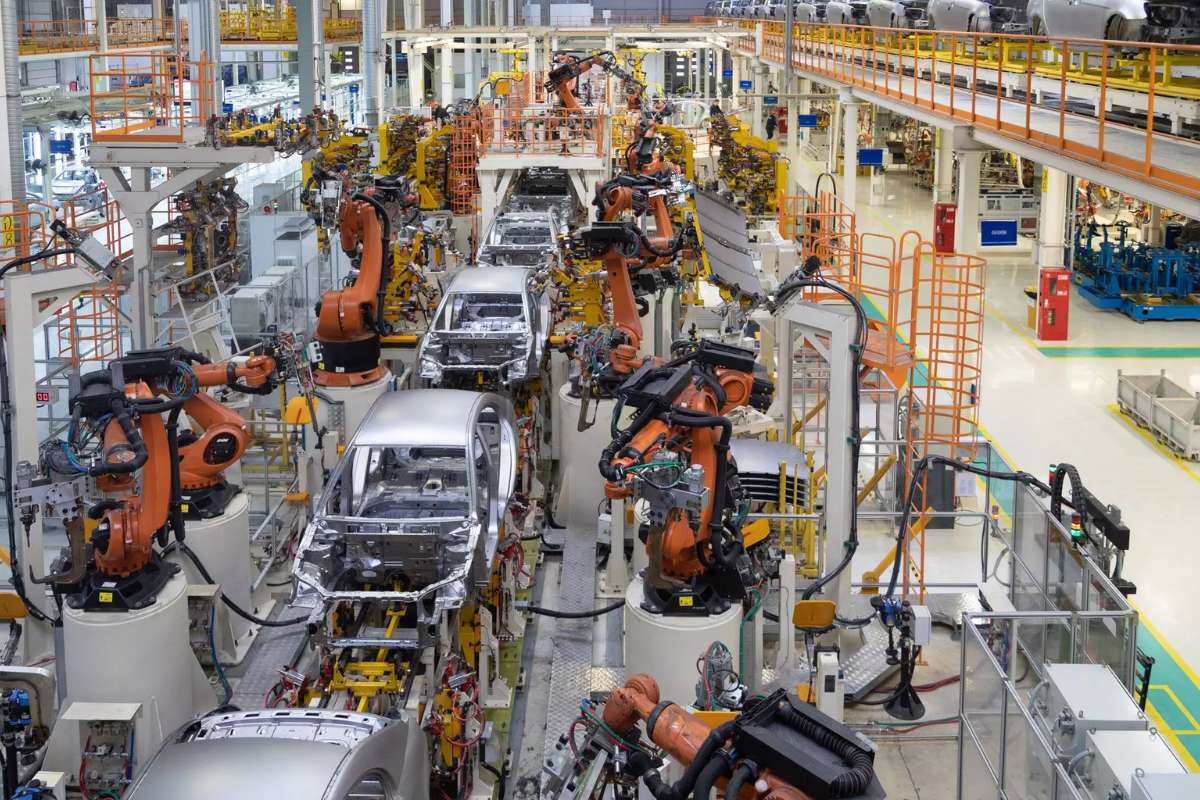Manufacturing has always been about more than just putting parts together. It’s about ensuring that every product leaving the production line performs as expected and reflects the brand’s promise of reliability. Manufacturing quality control represents a company’s systematic approach to maintaining consistent product standards throughout its production processes. This critical business function ensures that every item leaving the factory floor meets predetermined specifications, regulatory requirements, and customer expectations. As global competition intensifies and consumer demands for quality products rise, quality control has become the cornerstone of sustainable business success. Companies that master these principles protect their brand reputation and achieve significant cost savings, improved customer satisfaction, and competitive advantages in their respective markets.
In this article, we’ll discuss what manufacturing quality control really means, the different types involved, and the benefits it brings, as well as answer some common questions.
What Does It Really Mean?
At its simplest, manufacturing quality control refers to the systematic process of ensuring that products meet specific predefined standards and specifications. These standards may be the manufacturer’s internal benchmarks or external requirements imposed by industry regulations and safety bodies.
It involves inspections, measurements, tests, and evaluations carried out at various stages of production. For example, raw materials are inspected before they enter the assembly line, semi-finished components are checked at different steps, and finished goods are tested before shipment. The purpose is to detect defects early, minimize errors, and ensure that only products meeting the quality standards reach the customer.
It’s important to differentiate between quality assurance and quality control. While quality assurance focuses on designing systems and processes to prevent defects, quality control is the practical act of verifying whether products from those systems meet the expected quality. In other words, assurance is prevention, and control is detection.
What Are The Common Types?

Manufacturing quality control doesn’t follow a one-size-fits-all approach. Different quality control methods are applied depending on the industry, product type, and production method. Some of the most common include:
1. Statistical Quality Control (SQC)
This type relies on statistical techniques and sampling methods. Instead of checking every item, representative samples are tested to determine if the overall batch meets standards. Statistical tools like control charts help identify variations in the process before they become defects.
2. Process Control
Here, the focus is on monitoring and adjusting the production process itself. Sensors, gauges, and automated systems track performance metrics such as temperature, pressure, or machine alignment. By keeping processes stable, manufacturers can prevent defects from happening in the first place.
Also Read :- Quality Control Processes: Ensuring Excellence in Every Step
3. Acceptance Sampling
In this method, a random sample of finished products is inspected. If the sample passes, the batch is accepted; if it fails, it is rejected or reworked. This is commonly used in mass production, where inspecting each unit individually may not be practical.
4. Total Quality Control (TQC)
This is a holistic approach where quality control is embedded in every department and every employee’s responsibility. From procurement to shipping, everyone contributes to maintaining product quality.
5. Automated and Digital Quality Control
With modern technology, cameras, sensors, and AI-powered systems can inspect products in real-time. Automated inspection systems are faster, more accurate, and can detect micro-defects that human eyes might miss.
Also Read :- Manufacturing Execution Systems: Revolutionizing the Manufacturing Industry
Each of these types can be used individually or in combination, depending on the complexity of the product and the industry requirements. Together, they form the backbone of an effective program.
Benefits of Manufacturing Quality Control

Implementing robust quality control systems delivers substantial benefits across multiple dimensions of business performance. These advantages extend beyond simple defect prevention to cost reduction, customer satisfaction, and competitive positioning.
1. Enhanced Product Quality and Consistency
Manufacturing quality control ensures consistent production of high-quality goods by implementing stringent measures at various production stages. Companies can identify defects, deviations, and inconsistencies early in manufacturing, preventing substandard products from reaching customers.
This consistency builds customer trust and loyalty, as buyers know they can rely on consistent performance from products bearing the company’s brand. Manufacturing quality control systems help maintain product specifications within tight tolerances, reducing customer complaints and returns.
2. Cost Reduction and Waste Minimization
Effective quality control reduces production costs by catching defects early when correction costs remain minimal. Companies avoid expensive rework, scrap, and warranty claims by implementing proper quality control measures throughout their manufacturing processes.
Statistical analysis shows that quality control can reduce scrap levels, lower labor costs from rework, and improve supply chain accuracy by reducing material waste. These cost savings often exceed the investment required to implement comprehensive quality control systems.
3. Improved Customer Satisfaction and Brand Reputation
Manufacturing quality control is the final defense for customer satisfaction, which ensures that only acceptable products reach the market. When companies consistently deliver high-quality products, they build positive brand perception and increase customer retention.
Quality products that meet or exceed customer expectations contribute to positive word-of-mouth marketing and brand loyalty. This reputation for quality often allows companies to command premium pricing and maintain competitive advantages in their markets.
4. Regulatory Compliance and Risk Mitigation

Manufacturing quality control helps companies meet industry standards and regulatory requirements, reducing legal and financial risks. Companies must meet Many industries’ specific quality standards to operate legally and maintain certifications.
Proper documentation and traceability systems inherent in quality control provide evidence of compliance during audits and inspections. This preparation reduces regulatory risks and demonstrates corporate responsibility to stakeholders.
5. Operational Efficiency and Process Improvement
Manufacturing quality control systems generate valuable data about production processes, equipment performance, and operator effectiveness. This information enables continuous improvement initiatives that increase efficiency and reduce costs over time.
Companies using these techniques can identify bottlenecks, optimize workflows, and improve resource utilization across their operations. The data-driven insights support strategic decision-making and long-term planning initiatives.
Conclusion
In the modern manufacturing world, quality is not negotiable. Customers expect products to work reliably, regulators demand compliance, and businesses cannot afford the cost of poor quality. This makes manufacturing quality control a vital pillar of every production strategy.
By combining clear standards, regular inspections, advanced technologies, and a culture of accountability, manufacturers can deliver products that meet specifications and win customer trust. Ultimately, quality control is not just a department within the factory—it is an ongoing commitment woven into every stage of the manufacturing process.
FAQs
1. What does a quality control manager do?
A. They supervise inspections, analyze data, train teams, and ensure all factory quality standards are consistently met.
2. How is manufacturing quality control different from quality assurance?
A. Quality control verifies finished products or processes, while quality assurance focuses on building systems to prevent defects in the first place.
3. Which industries rely heavily on manufacturing quality control?
A. Automotive, electronics, medical devices, food and beverage, and aerospace industries depend on strict quality control to ensure safety and reliability.
4. How does technology improve manufacturing quality control?
A. Automation, sensors, and AI-driven inspections allow faster and more accurate detection of defects, reducing human error and improving efficiency.
5. Why is documentation necessary in manufacturing quality control?
A. It ensures traceability, supports compliance with regulations, and helps identify the root causes of defects when issues arise.
Also Read : Enterprise Chronical Magazine









